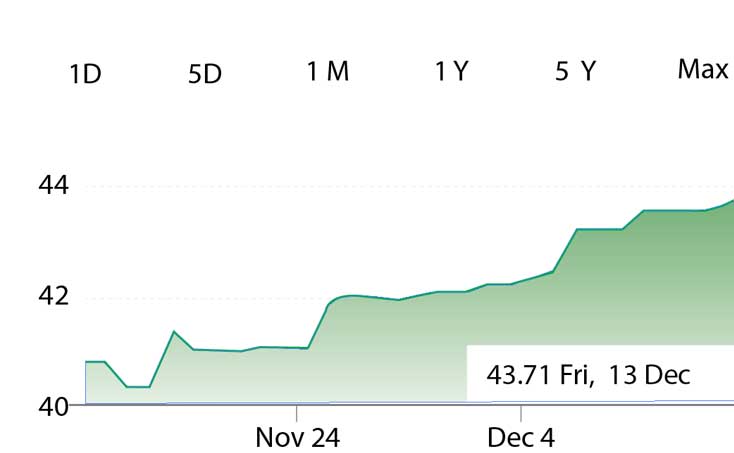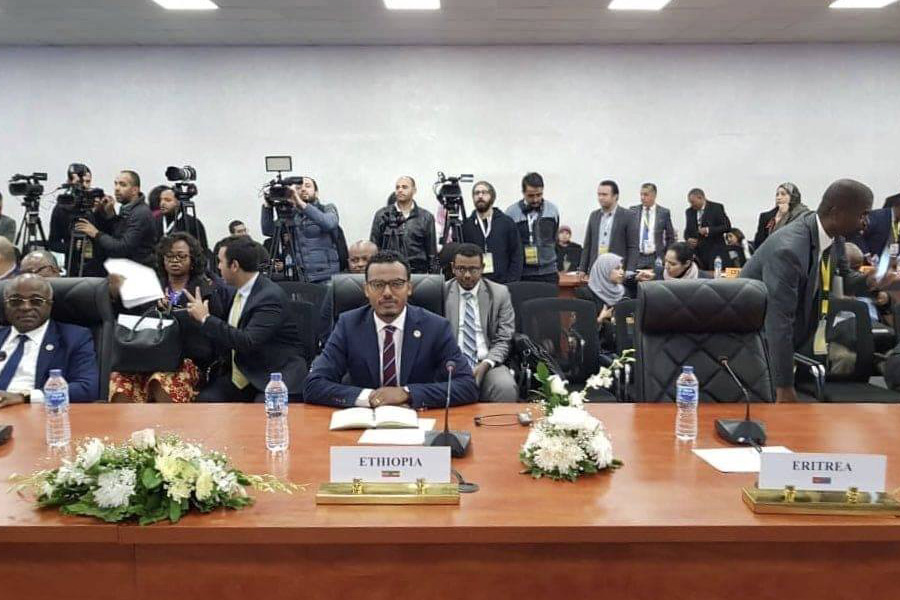
Jun 4 , 2022.
It was an institution confident in its mission, capabilities and progress that was on display during the African Development Bank’s (AfDB) most recent annual conference in Accra, Ghana. The weeklong event did not have a shortage of discussions on the challenges facing the continent. But the AfDB seemed to have sought to put a brave face on the continent, insisting that crises are best responded to collectively.
The Bank's President, Akinwumi Adesina (PhD), sang a rendition of Jimmy Cliff’s “I Can See Clearly Now” during the conference's closing session to drive the point through. Whether it will be a “bright sunshiny day,” as the song goes, is hard to tell. Africa is besieged by multiple problems ranging from COVID-19 to the impacts of the Russia-Ukraine war and rising debt stress. And indeed, political instability and security threats are the stables of the continent.
But it is true that more development literature sees the fate of African countries, at least those below the Sahara, tied together. It made sense to call for regional integration between countries at relatively similar levels of development - compared to the rest of the world - an aspiration best manifested through the African Continental Free Trade Area (AfCFTA).
A continental free trade area that brings down tariffs and duties could help countries leverage the strengths of their respective countries. Africa has the least intracontinental trade globally, with only 14.4pc of collective exports going to regional neighbours. The AfCFTA can incentivise competition, but between peers and without the striking shortcoming of pitting them against the more advanced world. It is one of the deals rare in that all be Eritrea signed up for it. No less than 33 countries have their respective parliaments ratified it. Ethiopia is one of these.
However, Ethiopia is modestly enthusiastic about it, less so than countries such as Uganda but more than Botswana or Mozambique, which are yet to ratify. With memberships in the Common Market for Eastern & Southern Africa (COMESA) and the Intergovernmental Authority on Development (IGAD), which have meant less than the paper of ratification, an Africa-wide free trade area is an opportunity not to be wasted.
Unfortunately, a look at the economies of other African countries exposes an uncomfortable truth. Ethiopia remains less prepared for the AfCFTA mainly because its regional integration with its neighbours is poor. Its trade preparedness has suffered due to the restrictions that it has created - either legal or in the doing business environment.
The streets of Accra, where the AfDB annual meeting was held, are the best examples of this. Even during rush hour, the trip from one of the city’s beachfront hotels to the Accra International Conference Centre takes about half an hour. It gives enough time and distance to catch a glimpse of some private sector players in the Ghanaian economy, such as MTN (telecom giant), Stanbic Bank (part of the Standard Bank network), Absa (financial firm), and Shoprite (a retail chain).
Some of these may sound like local businesses. They are not to the ears of citizens in African countries that have embraced regional economic integration. These are some of the most recognisable and valuable brands the continent has to offer, at least according to the report released this year by Brand Finance, a consulting and valuation firm. Among the top 10 brands in the report, only MultiChoice, which operates DStv, has a footing in Ethiopia, the second most populous African country. Six operate in next door Kenya. This says something.
Trade is another indicator that gives valuable insight.
The share of Ethiopia’s exports to Africa is around 16pc, which is not bad given the African average. Ghana’s is below 10pc, but Kenya shames both countries with a share of export value to African destinations at over 38pc of the total. One of the latter’s more prominent newspapers, Business Daily, was sore at losing a bid to host the AfCFTA secretariat to Ghana, precisely because Kenya's trade with the rest of Africa is outstanding.
Trade with African countries is not a matter of pan-Africanism or sentimentalism. Whether trading with Asia, Europe or Africa, transactions are made in dollars or euros, which are fungible. But trade is usually more profitable with close neighbours, which is why EU countries export to one another or why the American market is crucial to Mexico and Canada. Distances are shorter, and transport costs can be lowered, hence higher price competitiveness. Unless it is with merchandise with strong differentiation, such as Coffee Arabica, it will prove slippery for Ethiopia to break into markets of faraway regions. It needs the African market to diversify its exports.
The biggest challenge will be the financial sector. This is another aspect in which Ethiopia has been an outlier compared to the more open economies of, to name a few, Kenya, Ghana, South Africa, Nigeria and even Uganda. The banking and insurance industries have been sheltered from international competition for murky reasons - protecting domestic companies is brought up the most. No less relevant are capital controls that are more tightly held than many African countries have dared, which has allowed multinationals (including African, many of these South African) to enter their markets.
Any country that can take advantage of a continental free trade regime will have primed its financial sector for seamless cross border trading. The AfCFTA itself is developing a payment platform for cross border trading, which would not be usable in Ethiopia due to restrictive laws on capital movement. This is while banking laws apply to exclude what would be the drivers of the AfCFTA, foreign banks. They carry out much of the trade transacting instead of the dollar starved Ethiopian financial institutions.
Ethiopia needs to accelerate reforms in the financial sector and open up its capital account to embrace regional integration and make the best of the AfCFTA. As things stand now, it is one of the least integrated countries within the African business and financial ecosystem. It is ill prepared to trade and compete with peers.
It may sound insincere to claim that trade is wholly neglected. There are efforts to open up the banking sector, for instance. But the snail pace of reforms is not confidence inducing; perhaps Ethiopia is on the right track but not moving fast for it to matter. Lodged into one of Africa's least economically dynamic parts, the Horn, and one of the most warring, Ethiopia may have failed to notice the opening shot has been fired, but the race has begun.
A handful of African peers are in the lead. It is time to break into a sprint.
PUBLISHED ON
Jun 04,2022 [ VOL
23 , NO
1153]

Fortune News | Oct 23,2018

Fortune News | Apr 22,2022

Radar | Jun 08,2019

Radar | Mar 11,2023

Viewpoints | Mar 21,2020

My Opinion | 131584 Views | Aug 14,2021

My Opinion | 127940 Views | Aug 21,2021

My Opinion | 125915 Views | Sep 10,2021

My Opinion | 123539 Views | Aug 07,2021

Dec 22 , 2024 . By TIZITA SHEWAFERAW
Charged with transforming colossal state-owned enterprises into modern and competitiv...

Aug 18 , 2024 . By AKSAH ITALO
Although predictable Yonas Zerihun's job in the ride-hailing service is not immune to...

Jul 28 , 2024 . By TIZITA SHEWAFERAW
Unhabitual, perhaps too many, Samuel Gebreyohannes, 38, used to occasionally enjoy a couple of beers at breakfast. However, he recently swit...

Jul 13 , 2024 . By AKSAH ITALO
Investors who rely on tractors, trucks, and field vehicles for commuting, transporting commodities, and f...

Jun 29 , 2025
Addis Abeba's first rains have coincided with a sweeping rise in private school tuition, prompting the city's education...

Jun 29 , 2025 . By BEZAWIT HULUAGER
Central Bank Governor Mamo Mihretu claimed a bold reconfiguration of monetary policy...

Jun 29 , 2025 . By BEZAWIT HULUAGER
The federal government is betting on a sweeping overhaul of the driver licensing regi...

Jun 29 , 2025 . By NAHOM AYELE
Gadaa Bank has listed 1.2 million shares on the Ethiopian Securities Exchange (ESX),...